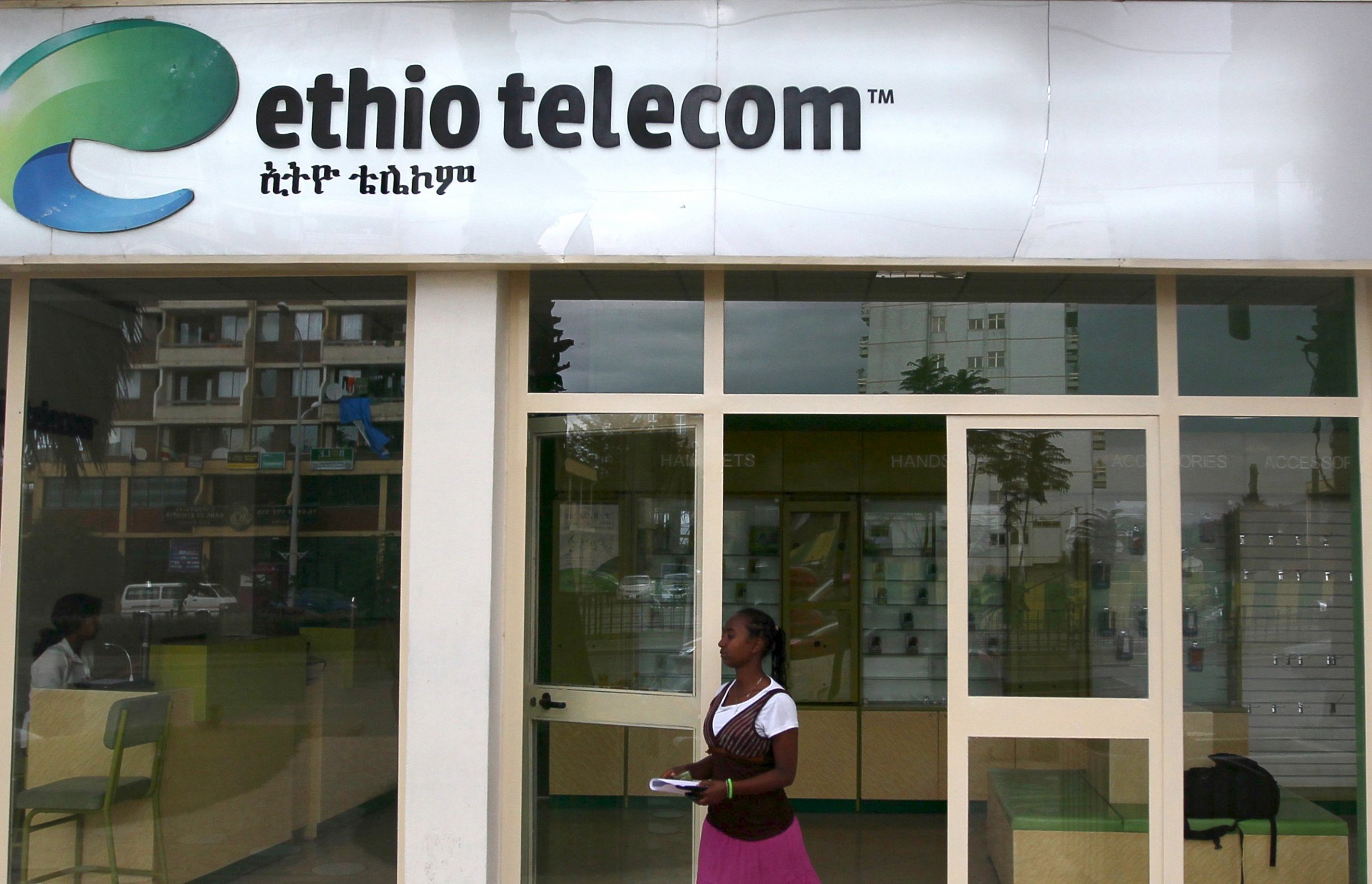
Ethiopians may have experienced a frustrating sense of déjà vu when they tried to log on to social media or use the internet on their cellphones Wednesday.
That's because the Ethiopian government has terminated mobile internet connectivity, a tactic the administration has used repeatedly in recent years to quell anti-government sentiment.
Ethiopia's deputy communications minister, Zadig Abrha, confirmed to AFP on Wednesday that "mobile data has been deactivated," but declined to provide any further information. The country's sole telecommunications provider, the state-owned Ethio Telecom, has also refused to comment.
Preliminary data from Google showed a dramatic fall in search traffic from the Horn of Africa country from Tuesday afternoon, which did not appear to have returned to normal by Wednesday evening. It is unclear whether both mobile and fixed internet connections were blocked, but the majority of Ethiopians who do use the internet do so on mobile devices: The country has 11.95 mobile-broadband subscriptions per 100 people, compared to 0.66 fixed-broadband subscriptions, according to the International Telecommunications Union.
Read more: Ethiopian athlete urges the world to help stop "persecution of Oromo people"
Julie Owono, the director of Paris-based internet freedom organization Internet Sans Frontières (ISF), says that the latest reports she has received were that internet connectivity had returned by Thursday morning, but that connectivity was not stable or fast. Owono tells Newsweek that access to some social media websites remains restricted.
Despite being one of Africa's fastest-developing economies, Ethiopia has an extremely low internet penetration rate of just 2.9 percent, according to U.S. NGO Freedom House; in neighboring Kenya, penetration stands at 43 percent.
Internet access has been patchy since the government imposed a six-month state of emergency following a year of protests that were concentrated in the Oromia region, surrounding the capital Addis Ababa, and resulted in hundreds of protesters being killed by security forces. (The state of emergency was extended by four months in March.)
This time, the internet shutdown appears to be linked to university entrance exams taking place across the country this week. Around the same time in 2016, Ethiopia blocked access to social media sites—including Facebook, Twitter and Instagram— after copies of the exams were leaked online.
The Ethiopian government has not confirmed whether the exam period, which ends on Friday, is the reason for the shutdown. Newsweek contacted the Ethiopian embassy in London for a comment, but received no immediate reply.
But Owono says that the risk of an exam leak does not justify shutting down mobile internet for the entire population, and that the Ethiopian government's repeated use of the tactic shows that it "fears connectivity."
"For the wrong reasons, [it] sees the internet as a threat rather than as an opportunity," says Owono. She points out that increasing internet connectivity and availability is part of the United Nations' Sustainable Development Goals, a global agenda for development. "The reaction of the Ethiopian regime is contrary to this global aim."
Ethiopia is not alone in Africa in closing down the internet to deal with social issues. In April, Cameroon lifted a three-month internet blackout in the country's English-speaking regions, home to about one-fifth of the population, following mass protests there in late 2016. Egyptian authorities have ordered internet service providers to block access to 21 news websites, claiming that they backed terrorism or reported fake news, in a move criticized by press freedom activists.
Internet blackouts have also proven to be financially costly to countries. Between July 1, 2015 and June 30, 2016, the internet was shut down for a period of 30 days in Ethiopia; this cost the country's economy $8.6 million, according to a report by the Brookings Institution.
Uncommon Knowledge
Newsweek is committed to challenging conventional wisdom and finding connections in the search for common ground.
Newsweek is committed to challenging conventional wisdom and finding connections in the search for common ground.
About the writer
Conor is a staff writer for Newsweek covering Africa, with a focus on Nigeria, security and conflict.
To read how Newsweek uses AI as a newsroom tool, Click here.








